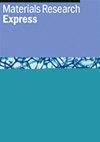Performance of lightweight coconut shell concrete-filled circular steel tube columns under axial compression
IF 2.2
4区 材料科学
Q3 MATERIALS SCIENCE, MULTIDISCIPLINARY
引用次数: 0
Abstract
The current study aimed to use coconut shell concrete, a structural lightweight concrete, as an infill material in concrete-filled steel tube (CFST) columns and test it under axial compression. Testing was done on eighteen short, intermediate and long coconut shell CFST columns and six normal-weight CFST short columns for comparison. For both types of columns, the axial load-displacement curves and modes of failure were examined. By varying the length-to-diameter and diameter-to-thickness ratios, the axial capacity of steel tubes filled with coconut shell concrete was assessed. The composite action was verified from the results of the confinement index, strength index and the contribution of the coconut shell concrete as infill concrete. Structural efficiency and energy absorption of the lightweight CFST column was contrasted with its counterpart column. The contribution of coconut shell concrete to the strength of the CFST column was the highest at 61.36% and more significant than that of normal-weight CFST columns. The coconut shell CFST columns were 23.63% lighter than the normal-weight columns, contributing to its higher structural efficiency. These columns also had 8.12% more energy absorption than normal-weight columns. Hence, the results of this investigation revealed that coconut shell concrete has the potential to be utilized in CFST columns. Further, compared to the experimental ultimate loads, the predictions made by the existing codes, EC4 and ANSI/AISC 360 are conservative.轻质椰壳混凝土填充圆钢管柱在轴向压缩下的性能
本研究旨在使用椰壳混凝土(一种结构性轻质混凝土)作为混凝土填充钢管(CFST)柱的填充材料,并对其进行轴向压缩测试。对 18 根短、中、长椰壳 CFST 柱和 6 根普通重量 CFST 短柱进行了测试,以进行比较。对这两种柱子的轴向载荷-位移曲线和破坏模式进行了研究。通过改变长径比和径厚比,评估了填充椰壳混凝土的钢管的轴向承载能力。从约束指数、强度指数和椰壳混凝土作为填充混凝土的贡献率的结果中验证了复合作用。轻质 CFST 柱的结构效率和能量吸收与其同类柱子进行了对比。椰壳混凝土对 CFST 柱强度的贡献率最高,达到 61.36%,比普通重量 CFST 柱的贡献率更高。椰壳 CFST 柱比正常重量的柱轻 23.63%,因此结构效率更高。椰壳 CFST 柱的能量吸收率也比正常重量的柱子高 8.12%。因此,这项研究结果表明,椰壳混凝土具有在 CFST 柱中应用的潜力。此外,与实验极限荷载相比,现有规范 EC4 和 ANSI/AISC 360 所做的预测较为保守。
本文章由计算机程序翻译,如有差异,请以英文原文为准。
求助全文
约1分钟内获得全文
求助全文
来源期刊

Materials Research Express
MATERIALS SCIENCE, MULTIDISCIPLINARY-
CiteScore
4.50
自引率
4.30%
发文量
640
审稿时长
12 weeks
期刊介绍:
A broad, rapid peer-review journal publishing new experimental and theoretical research on the design, fabrication, properties and applications of all classes of materials.
 求助内容:
求助内容: 应助结果提醒方式:
应助结果提醒方式:


